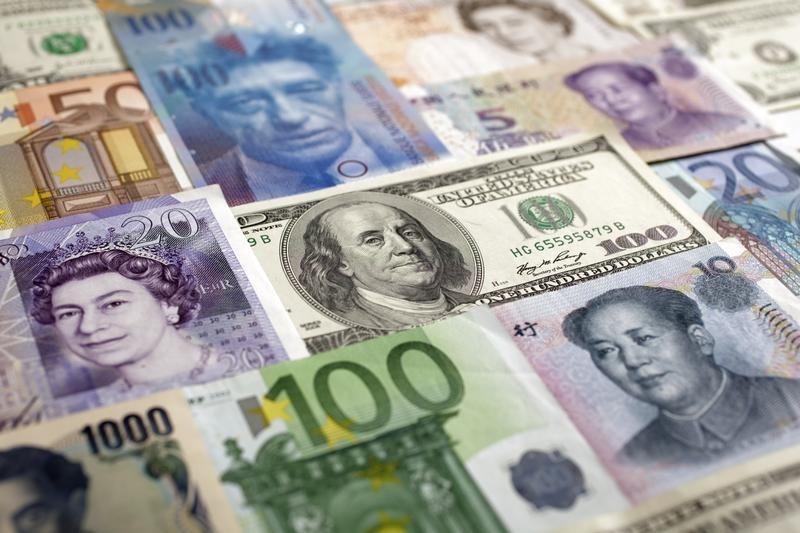* Euro rises back above $1.10
* Kiwi surges after RBNZ interest rate cut, statement
* Signs of volatility in holiday-thinned markets
By Patrick Graham
LONDON, July 23 (Reuters) - The euro jumped above $1.10 for the first time in a week on Thursday, this week's steadier tone and the doubts it has raised about the dollar's rally leading some players to abandon short-term bets for more gains.
The New Zealand dollar was the biggest mover, jumping 1.5 percent after the country's central bank disappointed those who bet on a larger cut in interest rates and toned down its call for more falls for the kiwi.
After a dive lower in morning trade in Europe, the dollar was half a percent lower against the euro, having briefly pushed above $1.10.
The dollar has surged almost 5 percent since mid-June, but its momentum faded this week, casting doubt over how long a year-old rally for the U.S. currency has to run.
"There doesn't seem any fundamental reason behind the move this morning. It can happen in markets where banks are taking on less risk than in the past," said Ulrich Leuchtmann, a strategist with Commerzbank in Frankfurt.
"In general, we expect the euro to fall but only in a slow manner. We will see some gains for the dollar as the Fed raises rates, but it will not happen in a big, front-loaded way as we have seen in previous cycles, the moves will be slower."
Traders said there were option expiries at $1.10 and resistance at $1.1050 which would contain the euro's move.
"There is a bit of short-covering going on," said a London based trader.
After a resolution, for now, of Greece's immediate problems, currency investors are easing into a summer lull with eyes chiefly on a shifting landscape for global central banks.
The pound and the dollar have been driven higher by growing expectations the UK and United states will raise interest rates soon. Others are still cutting, and the trend for several other currencies is lower as a result.
New Zealand was the only developed economy to raise rates since the 2008 financial crisis but has since returned to easing rates and a campaign to weaken its dollar. However, there have been signs of that official rhetoric softening as the currency hit six-year lows.
Dealers said the scale of "short" bets for further weakening helped prompt the turnaround when the Reserve Bank cut by only a quarter point on Thursday and tweaked its view on the dollar.
"Everyone was short, and it only took a couple of hints in the statement that they are not quite as gung ho as some people might have imagined to provoke this move," said a dealer with one international bank in London.
By 0743 GMT, the kiwi was up 1.5 percent at $0.6671 NZD=D4 compared with the six-year low of $0.6498 on July 14.
The dollar was also down 0.2 percent against the yen at 123.76 yen JPY= , holding just above a one-week low of 123.57 yen touched in the previous session.
The dollar index, which tracks the greenback against a basket of major currencies, stood at 96.979 .DXY , down about 0.5 percent on the day to its lowest in just over a week. (Editing by Larry King)
